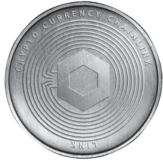Chainlink is a decentralized oracle network that connects smart contracts on any blockchain to real-world data and services. It enables developers to build feature-rich Web3 applications that can securely access off-chain data sources, APIs, payments, and computation across any blockchain. Chainlink also provides enterprises with a universal gateway to all blockchains, allowing them to leverage their existing systems and data with blockchain-based smart contracts.
Chainlink was launched in 2017 by Sergey Nazarov and Steve Ellis, who co-authored a white paper introducing the Chainlink protocol and network with Cornell University professor Ari Juels. It is an open-source project that anyone can contribute to and use. Its native token is LINK, which is used to pay node operators for providing oracle services and to stake as collateral for oracle network security.
Chainlink is the industry-standard oracle solution, powering trillions of dollars in transaction volume across DeFi, insurance, gaming, NFTs, and other major industries. It supports over 700 projects, including leading protocols such as Aave, Synthetix, Uniswap, and Polygon. Chainlink also works with global enterprises such as Google, Oracle, Swift, and the World Economic Forum to enable hybrid smart contracts that combine on-chain code and off-chain services.
Network Use Cases
Chainlink’s decentralized oracle network provides a variety of services for smart contracts, such as:
- Data Feeds: Chainlink provides high-quality, tamper-resistant, and up-to-date data feeds for various asset prices, market events, weather conditions, sports outcomes, and more. Chainlink data feeds are aggregated from multiple independent sources and delivered on-chain by decentralized oracle networks. Chainlink data feeds are widely used by DeFi protocols to secure billions of dollars in value and enable various financial products such as lending, derivatives, stablecoins, and insurance.
- Verifiable Randomness: Chainlink provides a verifiable random function (VRF) that generates provably fair and unpredictable random numbers for smart contracts. Chainlink VRF is ideal for applications that require randomness for fairness and security, such as gaming, NFTs, lotteries, and governance. Chainlink VRF ensures that the randomness source and the random output are publicly verifiable on-chain, preventing any manipulation or bias.
- Proof of Reserve: Chainlink provides a proof of reserve (PoR) service that allows smart contracts to verify the true collateralization of any on-chain asset backed by off-chain reserves. Chainlink PoR enables greater transparency and trust for tokenized assets such as stablecoins, wrapped tokens, synthetic assets, and more. Chainlink PoR monitors the off-chain reserves in real-time and triggers on-chain actions based on predefined conditions.
- Cross-Chain Interoperability: Chainlink provides a cross-chain interoperability protocol (CCIP) that enables cross-chain communication and value transfer between any blockchain platforms. This allows smart contracts to send messages and commands across multiple blockchains, facilitating cross-chain applications such as decentralized exchanges, bridges, swaps, and more. Chainlink CCIP leverages decentralized oracle networks to securely relay data and tokens between heterogeneous blockchains.
- Off-Chain Computation: Chainlink provides off-chain computation services that allow smart contracts to outsource complex or resource-intensive tasks to external systems. Chainlink off-chain computation enables smart contracts to access scalable computation power, privacy-preserving techniques, machine learning models, and more. This also reduces the on-chain gas costs and latency for smart contract execution.
Token Use-Cases
LINK is the native token of the Chainlink network, which has several use cases within the ecosystem:
- Payment: LINK is used to pay node operators for providing oracle services to smart contract developers. Node operators can set their own fees based on the demand and quality of their services. Smart contract developers can choose which node operators or oracle networks to use based on their price and performance.
- Collateral: LINK is used to stake as collateral by node operators to ensure the security and reliability of their oracle services. Node operators have to lock up a certain amount of LINK tokens as a penalty fee in case they fail to deliver accurate or timely data. The amount of LINK staked also signals the reputation and trustworthiness of node operators.
- Incentive: LINK is used to incentivize node operators to provide high-quality oracle services and maintain the network’s health. Node operators can earn additional LINK rewards by participating in various network activities such as data aggregation, computation, verification, governance, and more.
- Governance: LINK is used to enable decentralized governance of the Chainlink network by allowing token holders to vote on various network parameters and proposals. Token holders can also delegate their voting power to node operators or other entities that represent their interests.
“Hybrid smart contracts are smart contracts that combine on-chain code and off-chain services provided by oracle networks.
Protocol and Consensus Mechanisms
Chainlink’s protocol consists of two main components: oracle networks and hybrid smart contracts.
Oracle networks are decentralized networks of independent node operators that provide oracle services to smart contracts. Each oracle network can have its own data sources, aggregation methods, security models, and incentive mechanisms. Oracle networks can be customized and composed to meet the specific needs of any smart contract use case.
Hybrid smart contracts are smart contracts that combine on-chain code and off-chain services provided by oracle networks. Hybrid smart contracts can securely access any external data and computation across any blockchain platform, enabling feature rich Web3 applications that were previously impossible or impractical.
Chainlink’s consensus mechanism is based on a proof-of-stake model, where node operators must stake LINK tokens as collateral to provide oracle services. Node operators are rewarded for providing accurate and timely data and penalized for providing incorrect or delayed data. The amount of LINK staked also determines the weight of node operators’ votes in network governance.
Tokenomics
Chainlink’s tokenomics are driven by the supply and demand of LINK tokens within the network. The supply of LINK tokens is fixed at 1 billion, with no inflation or deflation. The distribution of LINK tokens is as follows:
- 35% allocated to node operators and ecosystem development.
- 35% allocated to public token sale in 2017.
- 30% allocated to the Chainlink team for research and development.
The demand for LINK tokens is determined by the usage and growth of the Chainlink network. As more smart contract developers use Chainlink’s oracle services, more LINK tokens are required to pay node operators for their work. As more node operators join the Chainlink network, more LINK tokens are locked up as collateral to secure their oracle services. As more token holders participate in network governance, more LINK tokens are used to vote on network proposals.

Governance
Chainlink’s governance is decentralized and community-driven, where token holders can influence the direction and development of the network. Token holders can vote on various network parameters and proposals, such as oracle network fees, data sources, security models, incentive mechanisms, and more. Token holders can also delegate their voting power to node operators or other entities that represent their interests.
Its governance is facilitated by a dedicated governance contract that allows token holders to create and vote on proposals. Proposals can be submitted by anyone who holds at least 1% of the total supply of LINK tokens, or by anyone who is delegated at least 1% of the total voting power. Proposals can be voted on by anyone who holds or is delegated any amount of LINK tokens. Voting is weighted by the amount of LINK tokens held or delegated by each voter.
Proposals require a minimum quorum of 20% of the total voting power to be valid. Proposals also require a minimum majority of 50% of the votes cast to be approved. Voting periods last for 14 days, after which the results are finalized and executed.
Risks
Chainlink’s risks are mainly related to the security and reliability of its oracle services, as well as the competition and regulation in the oracle market.
- Oracle Service Risks: Chainlink’s oracle services depend on the quality and availability of data sources, node operators, and oracle networks. If any of these components fail or malfunction, it could compromise the accuracy or timeliness of data delivered to smart contracts, resulting in financial losses or reputational damage for users. Chainlink mitigates these risks by using multiple independent data sources, decentralized oracle networks, staking mechanisms, reputation systems, and cryptographic proofs.
- Competition Risks: Chainlink faces competition from other oracle providers and platforms in the blockchain space, such as Band Protocol, API3, The Graph, and more. These competitors may offer similar or superior oracle services at lower costs or with better performance. Chainlink addresses these risks by continuously innovating and expanding its oracle services, supporting multiple blockchain platforms, collaborating with leading protocols and enterprises, and fostering a strong community and ecosystem.
- Regulation Risks: Chainlink operates in a highly dynamic and uncertain regulatory environment, where different jurisdictions may have different rules and standards for blockchain-based oracle services. These regulations may affect the legality or compliance of Chainlink’s oracle services, as well as the taxation or reporting requirements for users. Chainlink navigates these risks by following best practices and industry standards, engaging with regulators and policymakers, and adapting to changing regulatory landscapes.
Shariah Opinion
The LINK token can be considered Shariah compliant. It is used for valid and plausible services, and the underlying blockchain offers a genuine use case and utility. It’s also used for governance, with LINK holders able to vote on decisions about the network. LINK token holders do not hold equity in the underlying activities, and therefore token holders cannot be responsible for all and every activity that occurs on ChainLink. The holders of LINK are responsible to ensure that their governance and voting aligns with Shariah principles, and that any activity or transaction they make using LINK is Shariah compliant.
Conclusion
Based on and subject to the foregoing information, and for the purposes of this conclusion, nothing has come to our attention that causes us to believe that LINK is in breach of Shariah* principles and rulings as adopted by the scholars conducting this research.
*Attention is drawn to the term ‘Sharia’ and ‘Sharia compliant’ and its interpretation thereof as expressed in the following link https://shariyah.net/glossary/



